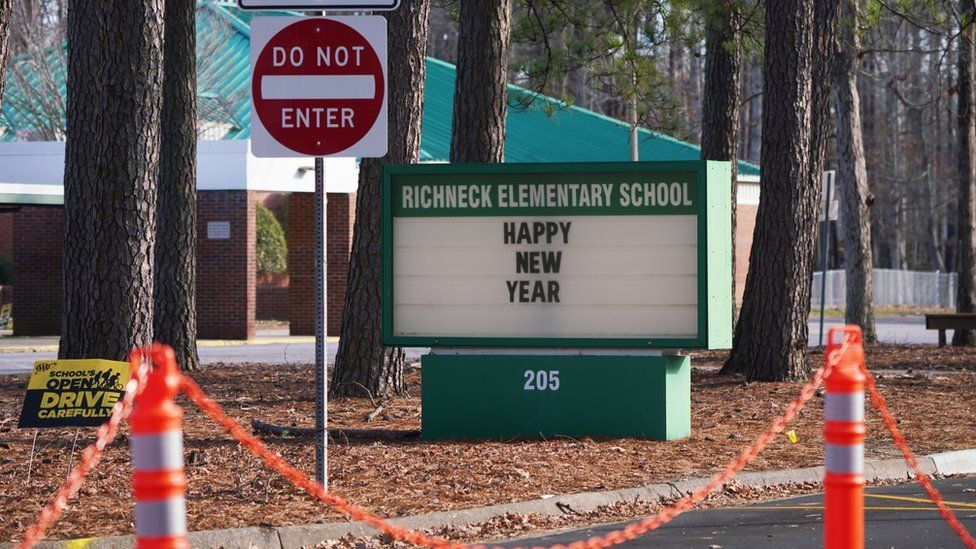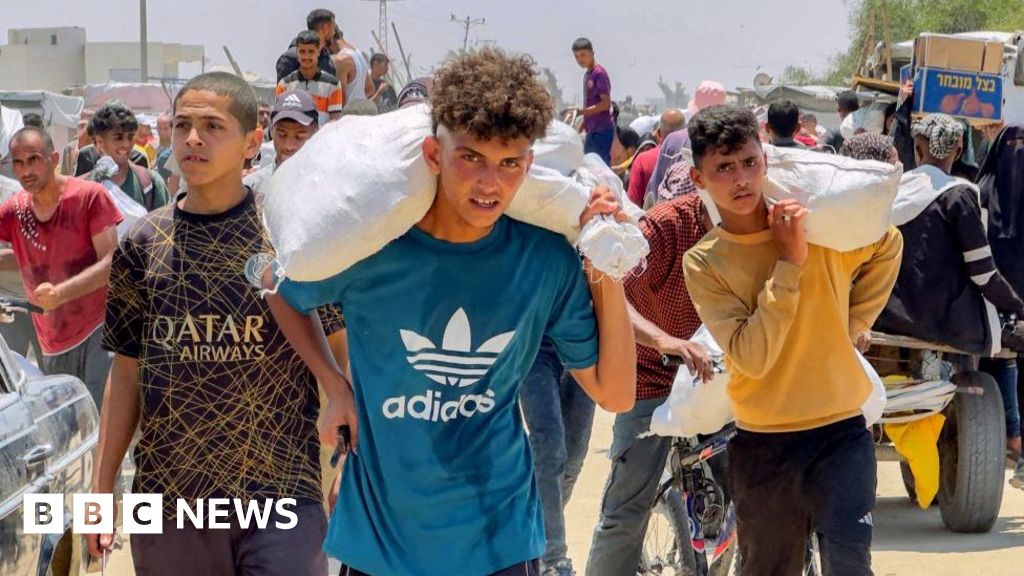ARTICLE AD BOX
 Image source, Getty Images
Image source, Getty Images
The elementary school in Virginia, where a six-year-old allegedly shot a teacher, will be closed this week
By Kayla Epstein
BBC News, New York
Less than a week into 2023, America reckoned with yet another school shooting.
This time, a six-year-old student allegedly shot his teacher with a handgun at a Virginia elementary school, in what police described as an "intentional" shooting.
The alleged perpetrator's young age has added a gut-punch twist to an already tragic scenario. The case has forced local leaders, police, and gun violence experts to confront a horrific question: What happens when a first grader shoots someone?
Four days later, the community of Newport News is still searching for the answer.
Legally, authorities are in uncharted territory. Virginia law prohibits charging a six-year-old child as an adult. The student could be charged in juvenile court, but the minimum age for a juvenile prison sentence is 11.
The child is currently at a medical facility, and police chief Steve Drew said authorities had consulted state child service and law enforcement agencies for guidance on the case.
Parents could be held responsible
It is possible the child's parents could face consequences.
In a Monday press conference, authorities confirmed the gun was legally purchased by his mother, and the child took it from the family home. His mother drove him to Richneck Elementary School on Friday while the weapon hid in his backpack.
Authorities did not say on Monday whether the child's parents would face charges or clarify how they stored their gun. Mr Drew called the gun's security a "key element" of their investigation.
Virginia law makes it a misdemeanour crime to "recklessly leave a loaded, unsecured firearm in such a manner as to endanger the life or limb of any child under the age of fourteen."
While the statute is intended to protect a child from harm, not prevent children from using firearms for violence, authorities may try to apply it in this case, said Robert Leider, a law professor at George Mason University.
In another scenario, the state of Virginia "may argue that it was the parents' actions that directly led to the teacher's shooting, and that the child was too young to attribute any independent wrongdoing to him," Mr Leider said.
Image source, Getty Images
Image caption,Superintendent George Parker III shared details abput the Newport News elementary school shooting
Few precedents for extremely young school shooters
While gun violence plays out at American schools multiple times each year, the shooters are almost never this young. Since 1970, 18 school shootings were perpetrated by children under 9, according to the K-12 School Shooting Database. Those cases represent a sliver of the more than 2,200 school shootings in the database.
David Riedman, the researcher behind the project, said that in the case of "a six-year-old child, the only way they're getting a gun is if they're taking it from a home."
One of the few historic precedents to the Newport News shooting also rocked the nation.
In February 2000, a six-year-old boy shot and killed his classmate at Michigan elementary school. Before shooting 6-year-old Kayla Rolland, the boy told her, "I don't like you," according to another child who witnessed the crime.
Prosecutors concluded that they could not charge the boy because he was too young to form the intent to kill, MLive reported. Rather, they indicted adult family members who lived with him, after concluding the boy had taken the gun, which was stolen, from his family residence. The boy was placed in the care of juvenile services.
One of the boy's family members ultimately pleaded no contest to involuntary manslaughter.
The case made national headlines and inspired former President Bill Clinton to push for a gun reform package known as "Kayla's Law."
"How many people have to get killed before we do something?" Mr Clinton asked members of Congress.
More than two decades later, America struggles to pass national gun safety legislation and hundreds of school shootings have occurred.
Sean Holihan, a state legislative director for the gun violence prevention group Giffords, said that Virginia already had gun laws on the books to prevent parents from leaving their weapons within reach of children.
Absent new legislation or nationwide gun restrictions, "A lot of this is about educating people and trying to make them more responsible gun owners," Mr Holihan said.
"If you live in a home with a child, for the love of god, lock your gun up."

 2 years ago
149
2 years ago
149








 English (US) ·
English (US) ·